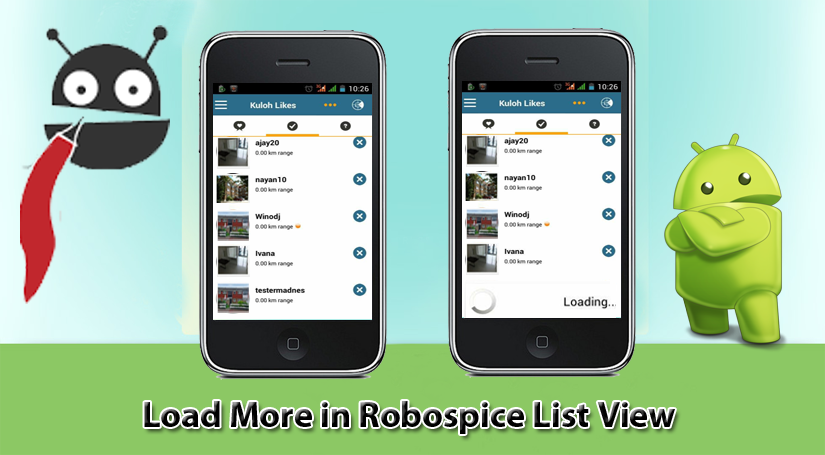Well ! As the ways of developing an app are changing these days, it provides useful and user-centric apps to businesses and organizations for improving their business presence through a mobile app. These all changes are possible due to the presence of various cutting-edge tools, platforms, and frameworks. These all things have brought ease and convenience for developers and designers to create incredibly potential mobile apps. The React Native is one of the new entrances in the mobile app development platform. It is a cross-platform app framework created by Facebook. It allows developers to use JavaScript in order to create mobile apps for both Android and iOS that look, feel, and are native.
React Native enables you to build world-class application experiences on native platforms using a consistent developer experience based on JavaScript and React. The focus of React Native is on developer efficiency across all the platforms you care about – learn once, write anywhere. So in few words, we can define ReactNative as:
- It is a framework for mobile development
- Responsible for building native mobile application
- Provides basic set of components for mobile platforms
- Uses ReactJs to build mobile app components
Benefits of React Native
There are many advantages for using React Native Framework but most effective are listed below
- Code Reusability: Allow you to write some basic UI code that can be shared together with all the logic. Having the capacity to share the code is in good interest for many reasons like- better usage of human resources, less code to maintain, less possibility of bugs and much more.
- Effective Developer Experience: With React Native it is not necessary to re-compile the entire rebuilt application every time you make a change, simply choose Cmd+R and refresh, like refreshing the browser to reflect the changes saving a lot of re-compilation time.
- Declarative API: It allows you to consider only the current UI state without keeping track of the older ones.
- Easy Reloading: It removes the need for recompilation of the application each time a change has been made. All that is required to see changes implemented in the code, is to refresh the app in the simulator, emulator, or device.
- Cross Platform: It means that you need to write the code once and use it on multiple platforms like iOS, Android etc.
- Open Source: It is open source and so, there is a big community of developers helping to implement more features, fix bugs, and help people.
Benefits of Native App
Native apps are smartphone applications written specifically for a particular device. iPhone apps are written in Obj-C or Swift while Android apps are written in Java.
- Faster: Since native apps work with the device’s built-in features, they are easier to work with and also perform faster on the device.
- Quality: While other methods can achieve greatness, native applications have the opportunity to be set apart. Greater chance your app will not get rejected due to poor user experience because the native app uses their native hardware’s feature to run the app.
- Aspect Ratio: Apps developed for tablets can’t be used for phones and vice versa. Not just the aspect ratios are different, but dpi also vary from one device to another. All these differences can completely change how should an app look and work. Using Obj-C or Java gives you more control on the size, resolution and even orientation.
- Native Look and Feel: We love being at home. Your application feels like it belongs to your device. Native apps feel and look like default apps, and users quickly get used to specific icons and button. Mobile apps that try to produce that old look again often appear worse because of unnatural valley effect.
Native or React Native?
Every framework has their pros and cons like – As React Native is new, it is not very perfect yet and it still has some bugs. There are still some features that are available in the native frameworks that have not been exposed to React Native.So, sometimes, developers can be stuck when diving deeper. On the other hand, Native is time-consuming and more costly due to high maintenance of multiple code bases. It may require more developers with experience in each framework to maintain.
In order to decide if you want to develop a native app or React Native app, you need to consider the following points:
- your existing coding skills,
- the purpose of your app,
- the longevity of the project.
- How important speed and performance would be, to you
- If you would like your app to include any device-specific features
- Your budget, vs. the estimated cost of developing your app
Conclusion
Though, React Native is following the write once and run anywhere, it would be proved to be a successful solution if you are building an app for any social group, eCommerce business etc. but, not any graphic specific app like- game because it can make your app slow and less responsive.
So, if you are new in the mobile development, I would recommend you to start with android native instead of React Native if you want to particularly develop android apps. As it will help you to understand the background knowledge of the Android which is required for any android app development otherwise you can be stuck in some problems which are related to the underlying platform. Especially, when your app targets many android API versions. I hope this article helped you in deciding which platform will suit you most for your app development. 🙂
If you are looking for React native developer with great experience please contact us at Pragmaapps. We provide end to end Software Development based on the latest technologies back by unique quality management systems to provide complete client satisfaction. Clear communication, dedicated support, prompt response and on-time delivery of solutions within the budget are the main USP of our company.
If you are interested in designing a mobile app, please get in touch with us.
Here are our Contact Details:
- Get a free quote for your requirements.
- Chat with us.
- Email us: [email protected]
- Skype us: makeurownrules
- Hangouts us: [email protected]
- Call us: +91-880 046 6470


